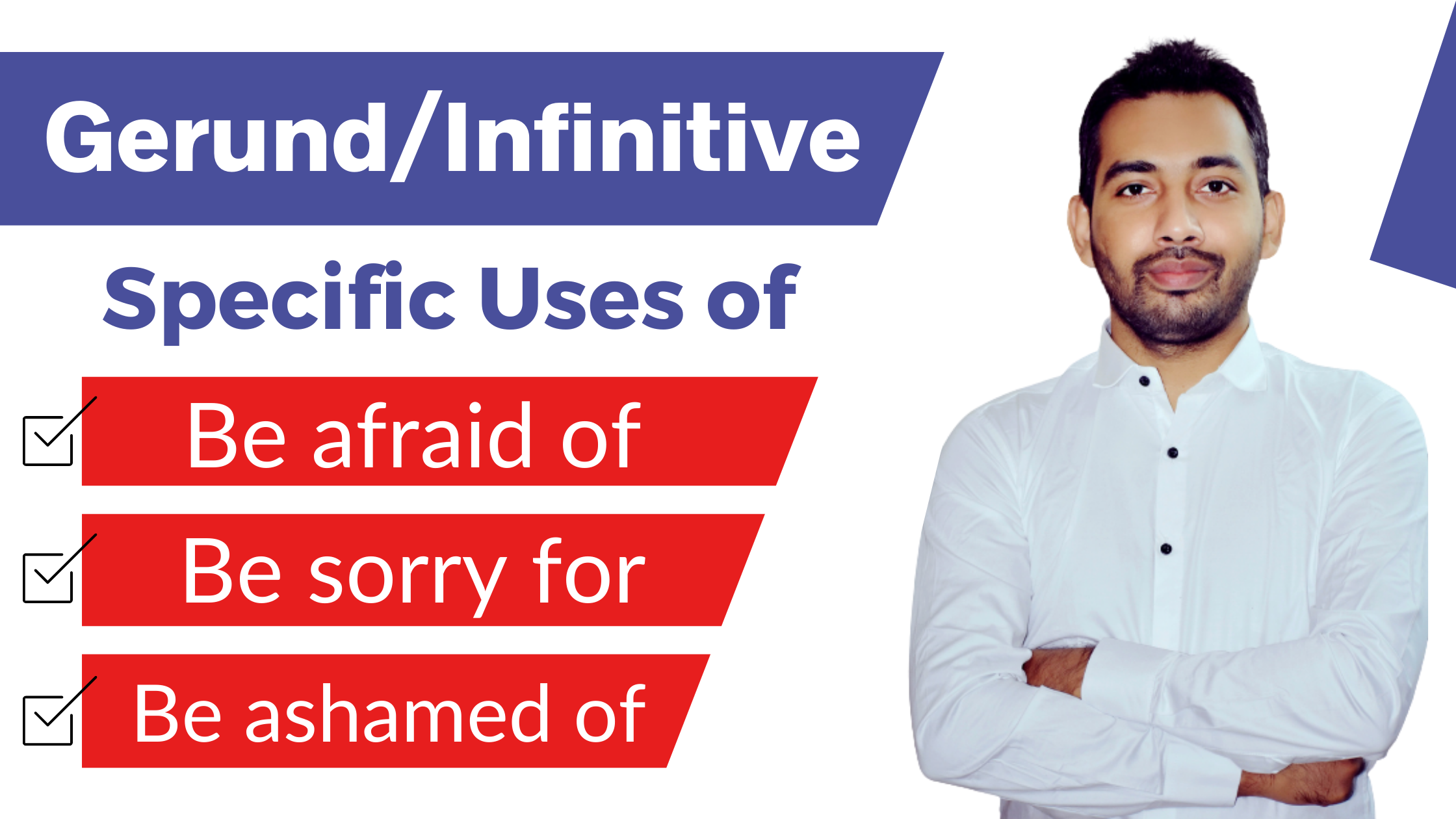We are going to see some structures for uses of gerund/infinitive. Because they are used widely in speaking and writing, we must have proper knowledge about how they should be used in a sentence.
(A) Be afraid of + Gerund + Noun / Pronoun
The use of ‘afraid of’ with a gerund shows the fear of a subject.
For example:
I never swam far out. I am afraid of getting caught.
She never shares her contact details because she is afraid of cheating.
Use of ‘Be afraid’ with infinitive expresses such a fear of the subject because of which he/she cannot perform an action.
For example:
I was afraid to swim (so I didn’t swim).
He was afraid to write a letter to his Principal (so he didn’t write).
I was afraid to ask my father (so I didn’t ask).
Also Read: Difference Between Each and Every
(B) Be sorry for + Gerund
Generally, a gerund is used for the previous actions.
For example:
I am sorry for making such a noise in the morning.
I am sorry for making a call on your phone.
It can also be used with immediate action.
For example:
I am sorry for disturbing you.
Please note that for immediate action, it is better to use the infinitive with the structure “Be sorry for.”
For instance: I am sorry to disturb you.
This Might Be Useful: Words Often Confused
Use of “I am sorry that….” shows real regret and sadness.
- I am sorry that you failed this time again.
- I am sorry that I couldn’t arrange money for you.
Note: If you want to express inconvenience as a formality, you can use the given structure:
I am sorry to say that your parcel has not arrived yet.
I am sorry to say that your sample is not ready so far.
(C) Be ashamed of + Gerund
The structure “Be ashamed of + gerund” is used to tell a past action.
For example:
You must be ashamed of lying to me.
You must be ashamed of cheating on your wife.
You can use “Be ashamed of” with infinitive as well.
For instance:
You must e ashamed to lie to me.
You must be ashamed to tell what you did with her.
Use of ashamed + infinitive with ‘would be’ stops the subject from doing work in the future.
Examples:
I would be ashamed to refuse her.
I would be ashamed to ask for help.
Use of ‘go on’ with infinitive
The meaning of go on is to continue. Generally, it is used with a gerund. However, it is used with an infinitive with verbs; explain, talk, tell, etc.
Examples:
He went on talking about his marriage.
They went on to talk about the current situation of their family.
Gerund with Regret, Remember and Forget
With verbs; regret, remember and forget, the gerund is usually used when the gerund is indicated by earlier action.
Examples:
She regretted abusing my brother last night. (Abusing the first action, regret is the second.)
I remember reading about this invention on the internet. ( reading is the first action and remember is the second.)
The use of gerund with ‘forget’ is generally negative.
I will never forget waiting for you so long.
We will never forget waiting for the guests to come.






